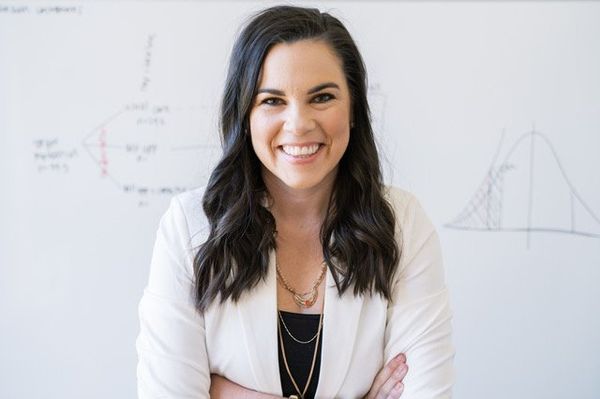Congresswoman Debbie Dingell has long been an advocate for women and children. She is a founder and past chair of the National Women's Health Resource Center and the Children's Inn at the National Institutes of Health (NIH); successfully fought to have women included in federally funded health research; and advocated for greater awareness of issues directly related to women's health, including breast cancer and women's heart health. So it came as a shock when she found herself being taken in for emergency surgery. She recently spoke with our editor-in-chief, Jaimie Seaton, about her experience as well as a topic she feels strongly about: health care.
The transcript has been lightly edited for clarity and length.
HealthyWomen: In May, you were rushed into emergency surgery for an ulcer. Can you briefly describe what happened?
Congresswoman Dingell: I'd had a full week. I'd had the president visit my district, had been in a lot of critical meetings, and I was headed home to Michigan. We finished the session, and I woke up at 3:00 a.m. on Friday morning. And I just had this horrible [pain]. My gut was on fire. I thought it was gas. I took some [anti-gas] pills. I tried drinking water, took a hot bath, and nothing would make it better. So, I called my doctor when the doctor's office opened, and they told me I needed to go to the emergency room. I went and was in surgery within a couple of hours because it turned out that I had a perforated ulcer and peritonitis.
HealthyWomen: Wow. It's amazing that just speaking to you on the phone they knew it was an emergency. Do you know what led them to understand the seriousness of the situation?
Congresswoman Dingell: I don't think she expected me to be in surgery that fast, but she asked me a couple of questions and said you need to go to the emergency room. Interestingly, a friend of mine who never calls me in the morning, and who's a doctor did call, and he asked me a couple of questions and said, "You have a perforated ulcer." Once I was at the hospital, every doctor that examined me knew instantly that I had a perforated ulcer. They still did an X-ray and a CAT scan to confirm it, but I was taken into surgery very quickly.
HealthyWomen: You and your doctors believe your ulcer was caused by overuse of over-the-counter medications, in this case, ibuprofen. I know you've spoken out on the dangers of taking opioids. Did you have any idea that over-the-counter medications could also be a health threat?
Congresswoman Dingell: I hate the word "overuse" because that makes it sound like you're calculatedly doing it. And I had no idea that ibuprofen could have this kind of side effect. My doctors had told me I should watch the amount of ibuprofen I take, but I had no symptoms. I did not have a stomachache; I had no clue I was in trouble until that Friday morning.
HealthyWomen: I read that your doctors warned you not to take so much ibuprofen. If this is accurate, what would you do differently knowing what you know now?
Congresswoman Dingell: They told me to be aware of it if I started to get stomachaches, so I was paying attention to that, but I had no symptoms.
HealthyWomen: What do you want our readers to know about what happened to you and the dangers of over-the-counter medications?
Congresswoman Dingell: I have long been someone that's warned people about the dangers of narcotics like oxycodone. But we think that if we're taking over-the-counter medicine, we're okay. And the fact of the matter is that over-the-counter medicines have side effects, too. We need to be informed consumers. I've heard many people's stories now since this happened to me in the last couple of weeks. I know someone who postponed knee surgery and was taking ibuprofen and lost a kidney because it also impacts your kidneys. And a number of drugs impact your liver. So if we do have pain, as I did — you know, mine came from a jaw infection — we need to know that there are potential side effects, we need to talk to our doctors about it, and we need to stay aware and conscious of how much we're taking and what the side effects can be.
HealthyWomen: I want to switch gears and talk about women's health in general. You've been an advocate for women's health for a long time. Despite advancement in many areas, women are still underrepresented in clinical trials, particularly women of color. What is your opinion on the current status and what needs to be done?
Congresswoman Dingell: I helped found the National Women's Health Resource Center and was very concerned when I found that women weren't being included in any federally funded research because we had hormones. I worked long and hard to get that changed. People were concerned that women might become pregnant, but that's exactly why we need to include women in these research studies — so we know the impact.
People are being careful. They don't want to harm a woman's reproductive system or a baby if a woman is pregnant. But we need to understand that 50% of the population are women, and that our bodies are different than men, and we need to be included in these trials. So, I'm a very strong supporter of the need to continue to fight to include more women in these trials, and we need to know we are 50% of the population. We need to understand what the potential impact of research drugs, etc., could be on our bodies.
HealthyWomen: Covid-19 revealed that we have a long way to go with health inequalities in this country, again particularly with respect to women and women of color. What lessons do you think the healthcare community and society at large can take away?
Congresswoman Dingell: I think that Covid shined a light on the disparities in our healthcare system. I'm a strong supporter and a leader of Medicare for All because I think that too many people, when they need to go to the doctor, simply can't afford to go. And I hope that we saw the light shined on these disparities during Covid-19, and that we can come together. I'm someone who believes very strongly that if you live in this country and you get sick, you should be able to go to the doctor and get the medicine that you need.
HealthyWomen: HealthyWomen recently hosted a webinar on how the Biden administration's American Jobs Plan and American Families Plan affect women's health care. Biden's plan broadens the definition of infrastructure so that health care or the health of the nation is as much a part of infrastructure as roads and bridges. As you know, this idea is being met with resistance by some politicians. What are your views on this?
Congresswoman Dingell: Well, if you look at the Oxford dictionary's definition of infrastructure, it's a system or processes that allow a government agency or organization to operate efficiently. And we all need to have our health if we're going to be at full capacity. We're the only industrialized nation in the world that doesn't guarantee all of its citizens health care. And the president's infrastructure bill also involves and includes caregiving: child care and care for our seniors. And as you get older, you're entitled to a safe and secure retirement. And if too many people can't get access to the kind of care that they need, they can't afford it, they don't have health care. I just think that's morally wrong. And as a country, we need to be addressing these issues.
HealthyWomen: If you could wave a magic wand and change one thing about health care as it relates to women, what would it be?
Congresswoman Dingell: You know, I'd wave a magic wand, and it's not just women, because if you get sick and you know that something's wrong, you know your body better than anybody. You should not have to think about whether you can afford to go to the doctor, and if you go to the doctor and they find something wrong, whether you can afford the treatment you need.







